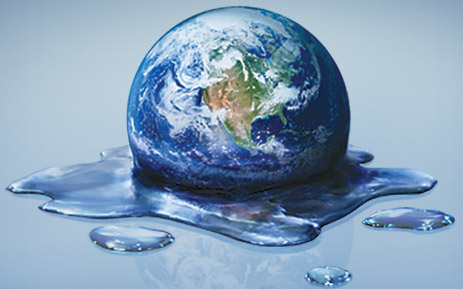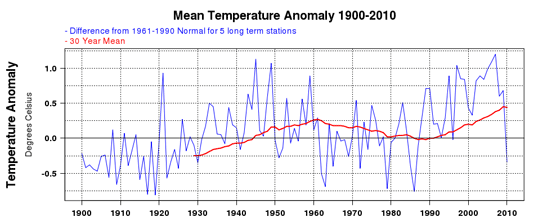So how is the weather treating you today? The climate seems volatile, thank you sir. Confused yet? Weather and climate are at times mistaken for the same thing, but there is a difference.
The weather is a temporary state of meteorological conditions. Climate is a constant state of conditions recorded over a period of time; consisting of meteorological conditions, temperature, rain and wind. So climate is the constant state the environment finds itself in over many years (30 years), while the weather truly is here today, gone tomorrow. It is important that our environments are constantly in a state of good equilibrium and that the weather re-acts in a seasonable way for it to produce the necessary supplies we need to survive and succeed economically. Climate change affects our seasons and in turn destroys the cycles of life which helps us to survive. It affects: the way we harvest and produce food, our animal kingdoms, and creates an unbalanced earth where some people suffer the consequences and others don’t…yet.
Climate change was back in the news last week, on the 16th of July, Thursday, when President Michael D. Higgins visited Paris to discuss climate change with other spiritual and politcal leaders from around the world. President Higgins was speaking at the Summit of Conscience for the Climate organised by French President François Hollande and joined by other world dignitaries; Kofi Annan, Mary Robinson and Arnold Swartzenegger. Although a spiritual gathering, President Higgins approached his address to the assembly with a scientific and humanitarian argument.
The President said that the truth, science has revealed cannot be disputed or ignored as the reason for climate change. The ethical and intellectual challenges have to be considered because when ignored, this leads to the destruction of our planet; this is the challenge this generation needs to respond to. “We must begin with an acceptance of the evidence of science. It is now clear that failure to respond to the scientific reality of climate change may ultimately lead to the destruction of life on our planet. We must therefore unequivocally reject the position of those who would obscure the scientific reality of climate change in their protection of any narrow and short-term self-interest. The first ethical test is in accepting that there can be no compromise with truth,” President Higgins said.
Climate change is affecting some countries and regions worse than others, and these nations suffer more because of climate change. Poorer countries need to be re-educated and taught how to care for the environment in a greener way. The President also spoke about this at Thursday’s conference: “Would it not be the greatest of all human achievements if we were to succeed in delivering the benefits of science, the shared wisdom, instinct and intuition of diverse cultures, and the products of reason and faith; and in delivering all of these through new, balanced models of development, ecology and society? Then we might say that when facing the fullness of our challenge, we made the decisions that offered a shelter that protected the vulnerable of the present, and at the same time, offering creative and imaginative possibilities for future generations. Let us succeed together.”
So, what has science revealed so far and what can be done for the part of the world that has been hit harder by climate change and global warming than others?
Firstly, climate is estimated by accumulating weather data over a period of 30 years and this data is analysed and compared to previous periods. We all know that summer is warmer than winter and autumn milder than spring, and the weather will reflect this same truth when temperatures are analysed. The climate does not stay the same for every year. Some years are warmer than others. For instance, 2014 proved to be Ireland’s warmest year since recording of this kind has begun. We talk about climate change when there is a significance change in the weather and it has been scientifically proven that it can be put down to the build up of greenhouse gases in the atmosphere. Other factors that could play a role in climate change are volcanic eruptions and variations in solar intensity, but human activities are the biggest reason for GHGs, causing the changes in climate.
Science has also proved that GHGs come from transport, the burning of fossil fuels, methane emissions, heating and cement manufacturing. GHGs allow sunlight when it passes through the earth’s atmosphere to enter through and stops it from returning to where it came from, creating a “greenhouse” effect. The energy that was generated by the surface of the earth is trapped underneath a thick blanket, causing global warming. Reports show that over the last three decades our planet: has been getting warmer; there is less snow and ice; the sea levels have risen; and greenhouse gases are on the increase. The human race unfortunately, is to blame.
Ireland’s Mean Temperature 1900-2012
Source: Ireland’s Climate: The Road Ahead
On the chart above, you can see how temperatures are rising in Ireland – follow the red line. This is caused by global warming; a result of GHGs generated by humans. If this continues there will be bigger problems to face and it might be irreversible damage we are facing; that is why it is of the essence that climate change be stopped and controlled. So how would we go about stopping the climate from changing? Mr Higgins said in his address: “When history records the actions we take or fail to take at this our moment of truth, we will not have the excuse that we did not understand, that we did not know. We have been gifted, in a global communications order, with the knowledge and the opportunity to act.”
In other words, all of what we can do to prevent GHGs from accumulating and global warming from changing our weather has been spoken about, discussed in our schools, colleges and communicated in the media. We need to draw from our resources and apply them to our lives without hesitation and re-educate the next generation. We also need to think of ways to help the helpless and think of ways to solve their problems for them, because it is often harder to see the solutions to your problem when you are in the midst of it.
When the industrial age was set in motion in the eighteen century, machinery arrived and these machines needed fuel to operate. Machines run on fuels and gases with carbon dioxide emissions being released as the energy is generated. The industrial age brought about great economic growth, but climate change will eventually become the very reason why the economy crashes and destroys our resources. Once our resources dry up and are jeopardised by greed, we will be rationed and future generations will have to deal with these consequences. The industrial age is also the reason temperatures keep rising, not only in the heads of those who are losing money and suffering financially, but on a planet that was designed with all the resources we ever needed with to survive. There were plenty of minerals, trees, fresh water, animals and perfect seasons feeding our needs in the beginning. There would never have been a reason to fear our own survival, if greed had not taken over.
The cycle of life includes many life forms and within this cycle there is carbon exchange, when this carbon is in balance we are not in trouble. But carbon dioxide is on the increase, because more carbon is being used to run machinery and factories to aid economies and thus more carbon dioxide is released into our atmosphere. In Mauna Loa, a 40% increase in CO2 with concentrations of 407 ppm was recorded in May 2015, that is an alarming figure. The cutting away of forests and clearing of lands are largely to blame for the carbon not restoring to its natural balanced cycle as developers take over from nature to create concrete jungles.
Mr. Swartzenegger who was at the Summit is not for the termination of this beautiful world as his character tried to do in the famous sci fi movies, on the contrary he said: “I’ve starred in a lot of science fiction movies and, let me tell you something, climate change is not science fiction, this is a battle in the real world, it is impacting us right now.” So true that is, when movies sets are broken down and you have battled the future to change the past, things return to the way they were, but unfortunately if we break down this planet, we will need a miracle to resurrect and save it from total destruction.
President Hollande moved away from science fiction in his address to the Summit and had a more spiritual outlook on the current situation of climate change; he said that: “We live in a world in which there is a profusion of science and a deficit of conscience, we need to rethink our entire relationship with the planet.”
It is good to know that the leaders of our world took the time to gather and give their opinions and solutions to the problem of climate change to the audience. That they are working together to reach answers means we can hope for a better future, one that incorporates our planet surviving another 4.54 billion years.










